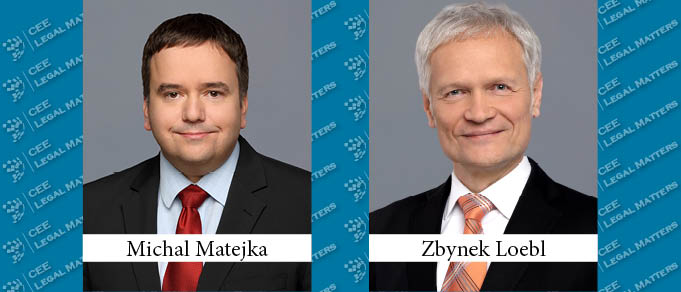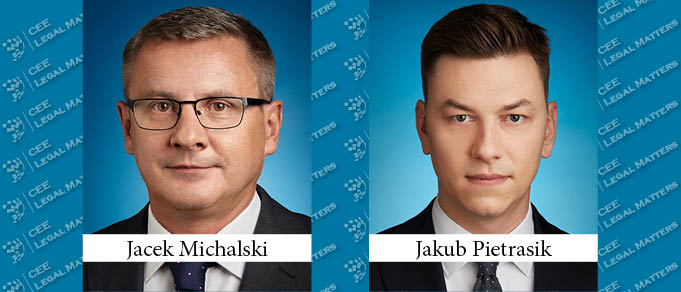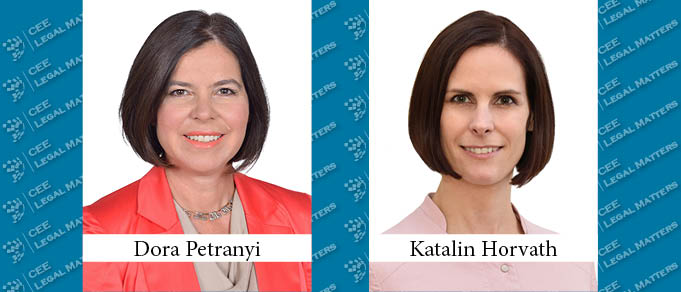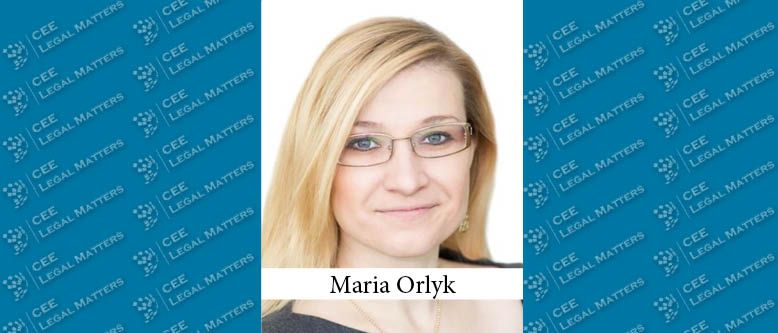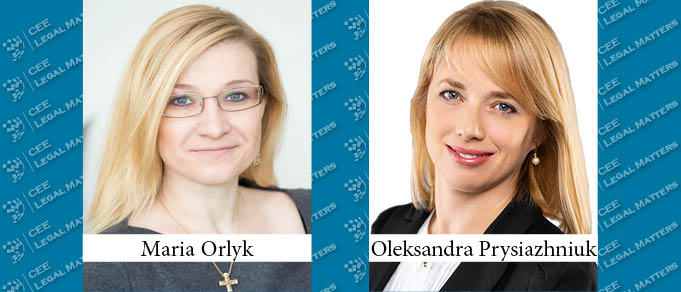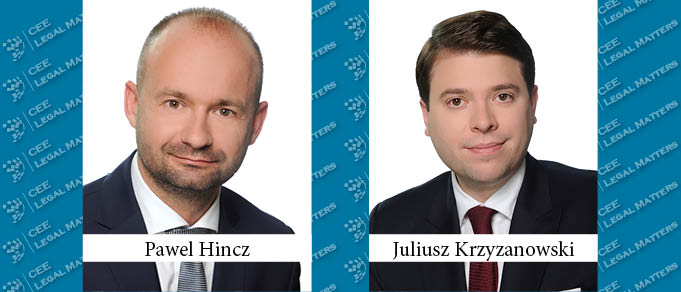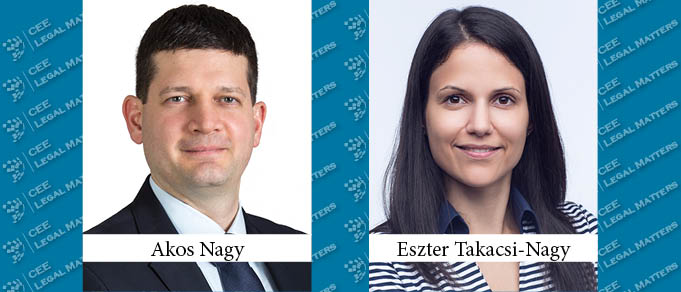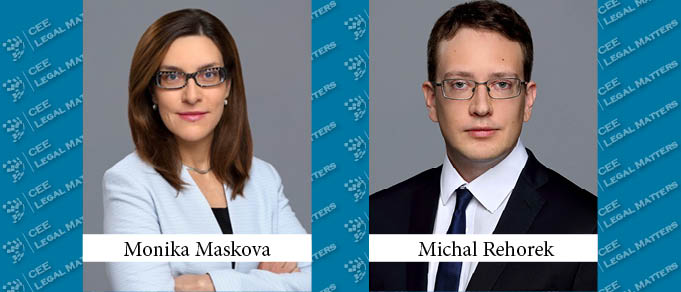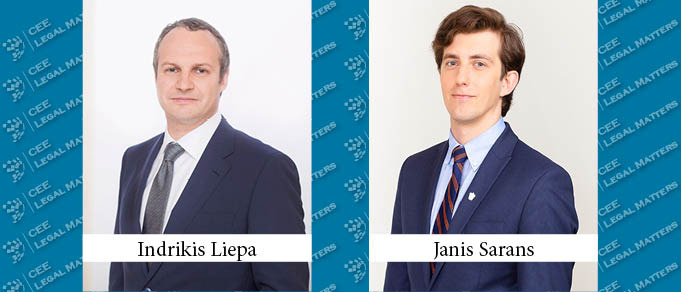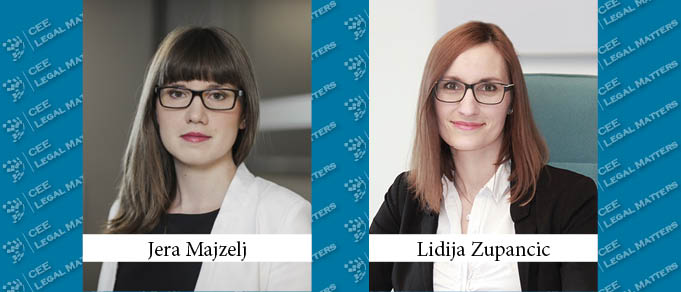During the current pandemic crisis, courts in countries around the world have had to suspend their regular operations and have focused only on the most urgent and time-sensitive matters. Yet the first few online courts have been able to maintain regular service. This has led to a massive increase in interest in and awareness of online dispute resolution (ODR) and online courts among judges, arbitrators, mediators, and lawyers in general. The pandemic has highlighted the ability of ODR to keep operating in crises that impact physical operations. Suddenly Zoom and even email are being considered ODR technology because they enable online court proceedings and distant mediations.
Poland: Switching to the “New Normal”
There is a question circulating on the Internet right now: Who led the digital transformation of your company? Possible answers are: a) CEO; b) CTO; c) COVID-19. Which answer is correct?
Hungary: (Over)Regulating Artificial Intelligence in the EU
In February, the EU Commission issued its new White Book on Artificial Intelligence – a European Approach to Excellence and Trust. The White Book is the prelude to a new EU regulatory framework for AI that aims to minimize the risks of AI and seize the opportunities it offers.
Changes to the Commercial Code in 2020
On October 22, 2019, the Slovak parliament adopted Act No. 390/2019 Coll. (the “Amendment”), which significantly amends the Slovak Commercial Code as well as some other acts. Most of the Amendment’s provisions will come into effect on October 1, 2020.
Ukrainian Gas Transmission System Unbundling – Mission Possible and Completed
2019 was an outstanding year for Ukrainian gas sector, as the country managed to complete the most critical parts of the unbundling of the gas transmission system in a timely manner. The year was also remarkable because, in twelve months, we saw three different unbundling models proposed by the Government, forcing the participants of the unbundling process and the key stakeholders to quickly adapt to the new rules and scenarios. For most of the year the country planned to implement an ownership unbundling model. However, in September 2019, before the third round of trilateral Ukraine-Russia-EU talks on gas transit, the unbundling plan took a U-turn, when the newly appointed Ukrainian Government, in its Resolution 840 (the “New Unbundling Resolution”), decided to switch to the independent system operator (ISO) model.
IP Reform in Ukraine and its Impact on Business
Under the EU-Ukraine Association Agreement of June 27, 2014, Ukraine undertook to harmonize its legislation with EU law by 2023, including the regulatory framework for IP. Subsequently, in February 2020, the Parliament of Ukraine adopted a long-awaited set of draft IP protection laws (the “Draft Laws”), which are likely to have a significant impact on companies doing business in Ukraine, as well as on the measures which may be taken by businesses in connection with IP commercialization.
Changes Expected by Joint Stock Companies in Ukraine
Since 2008 joint stock companies in Ukraine have functioned under a special corporate governance law (the “JSC Law”), which has improved through the course of its existence. Year after year, with the help of the SEC and the business community, Ukrainian legislators have introduced profound amendments to the law to bring corporate governance in JSCs in Ukraine closer to European standards, to attract foreign investments, and to insure adequate protection of rights of various stakeholders (minority shareholders, creditors, etc.) As a result, Ukraine has moved up in the World Bank’s Doing Business ranking, and in 2020 the country ranks 64th in the ease of doing business and 45th in the minority shareholders protection component.
Bosnia & Herzegovina: Unlawful Delisting of Foreign Medicines Manufacturers
A scandal shaking the pharmaceutical market of Bosnia and Herzegovina for several years now related to the unlawful delisting of foreign medicines manufacturers has moved to a silent but almost thriller-tense phase as the country awaits the Court of Bosnia and Herzegovina’s final decision. The current countdown was preceded by a unique crisis in 2018, when two subsidiaries of foreign pharma giants that had been delisted decided to fight back, even as a number of smaller players liquidated their companies and withdrew from the market.
North Macedonia: Medical Cannabis in North Macedonia
Cultivation of medical cannabis has become a lucrative business in recent years. Countries around the world have started legalizing this controversial crop, approving medical cannabis in particular in some capacity. In 2018, Canada made history by passing the Cannabis Act, thus becoming the first industrialized nation in the world (and second overall, after Uruguay) to pass legislation allowing adults to purchase marijuana. In addition, over 33 states in the USA have made the use of cannabis legal for medical purposes.
Turkey: Authorization Process for Medicines in Turkey
Recently, the spread of COVID-19 has been classified as a “pandemic” by the World Health Organization. With the global contagion of the epidemic, rumors have appeared regarding the development of new medicines and vaccines in Turkey, as everywhere else, and this situation has caused much misleading news and information to be published by the media and on the Internet.
Bulgaria: The Effect of the New EU Medical Device Regulation on Bulgarian Legislation
In 2010, France’s Agence Nationale de Sécurité du Médicament published the results of tests of breast implants produced by the French company PIP and banned their use, due to an increasing number of reports of incidents related to impaired implant integrity and subsequent health-related complications.
Poland: Challenges for Life Sciences Lawyers in the Time of Coronavirus
All European countries are now facing the SARS-CoV-2 pandemic and each state is undertaking different measures to limit the spread of the virus. Recently, the Polish government has extended the so-called “export ban list” – a list of, in particular, medicinal products and medical devices the export or sale of which abroad may be subject to the objection of the Chief Pharmaceutical Inspector. This list grew by over a thousand items in the past month and has changed from a list of products subject to parallel export due to price differences to a list of products that we want to keep in Poland. Also, the President of the Office for Registration has asked pharmaceutical companies to consider launching clinical trials in these unique circumstances.
Hungary: Cyber Incidents in the Healthcare Sector on the Increase
In recent years, and for multiple reasons, cyber-attacks against healthcare providers have increased significantly on a global level. First, IT platforms and devices used by healthcare providers have a technical diversity, while sources devoted to an integrated cybersecurity system for these IT platforms are often limited, making the IT systems vulnerable and ideal targets of potential cyber-attacks. Second, health data qualifies as “highly sensitive data,” which is considered very valuable on the black market compared to other types of personal data.
Czech Republic: First Steps on the Journey to EHEALTH
Similar to other areas of human endeavour, healthcare is bound to undergo the inevitable process of digital transformation. In the last two years the Czech Republic has taken its first steps towards digitizing its healthcare system by introducing mandatory electronic prescriptions and electronic sick notes and is about to introduce an electronic medications record. Unfortunately, there has been little progress on other fronts. Moreover, the Ministry of Health has yet to complete its draft law setting common standards and rules for eHealth, and it is unlikely to meet its current goal of having the law go into effect in 2021.
Slovakia: First Medical Vending Machines in Slovakia
A well-known chain of pharmacies launched a pilot project to run medical vending machines in Slovakia last year. Although Slovakia has not had such machines in the past, they are not uncommon abroad.
Latvia: A Solution to Insufficiencies in Supply of Medicines in Latvia
In accordance with statistical data from 2018 and 2019, Latvia’s State Agency of Medicines concluded that there is a high risk of unavailability of state-reimbursed medicines in the Latvian pharmaceutical market, mainly as a consequence of the behavior of the wholesalers. The same conclusion was reached by the Competition Council of the Republic of Latvia which, in late 2018 and 2019, published two reports on the availability of medicines. Accordingly, it was concluded that the existing regulatory framework was unable to provide an effective market protection mechanism to reduce the risk that patients in Latvia might not have access to state-reimbursed medicines, because after these medicines are made available in Latvia by producers or importers, they are exported to third countries or other EU member states by other market participants.
Croatia: Advertising Medical Devices in Croatia – Barely Regulated, but Heavily Monitored
Advertising of medical devices is a significant market activity in the regulated pharma industry. Companies are always in search of new tactics and business strategies to remain competitive in the market and to attract new customers, in conditions of fierce market competition.
Slovenia: Will Regulation Catch Up with the Rapid Growth of the CBD Market?
CBD products are the latest consumer fad, and demand and supply has significantly increased all over the world. The market for CBD products is projected to keep growing, and according to some estimates, the European CBD market should be worth some EUR 1.5 billion by 2023. Despite such rapid development and expansion, placing CBD products on the Slovenian market remains somewhat of a legal grey area.

